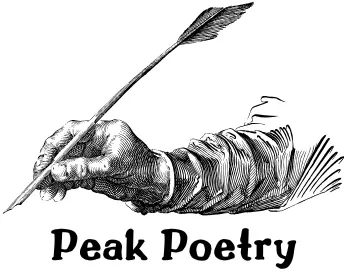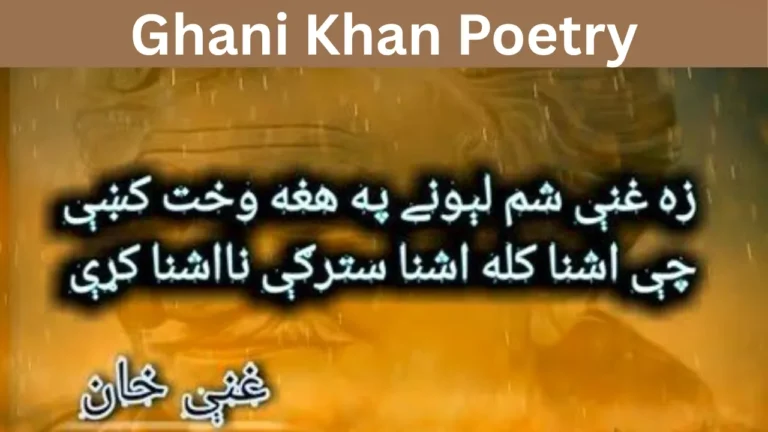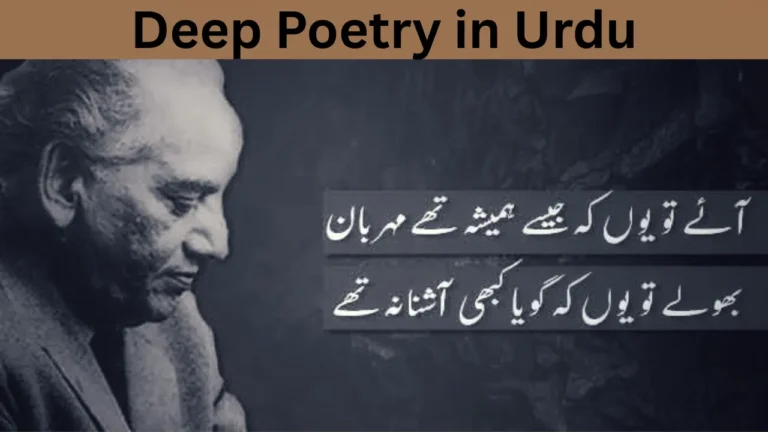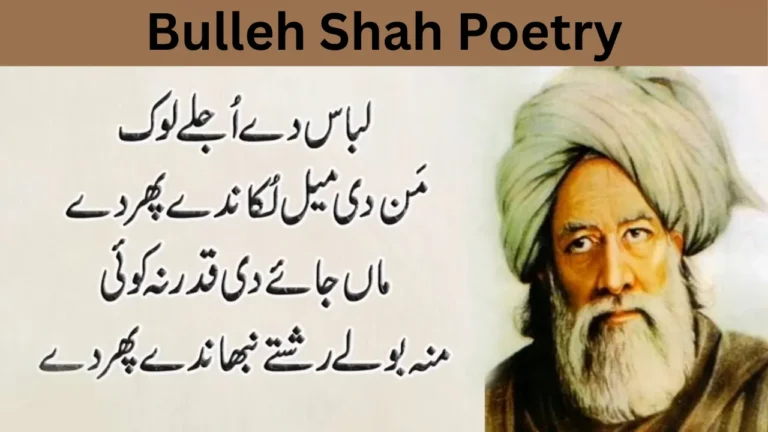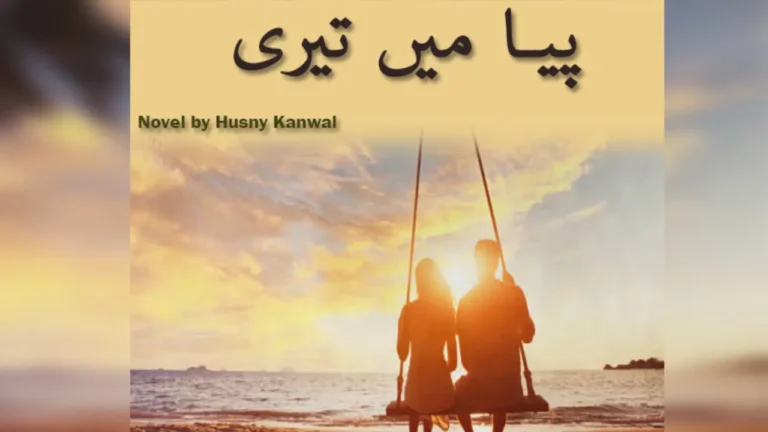12 Rabi ul Awal Poetry in Urdu: A Tribute to the Prophet’s Birth
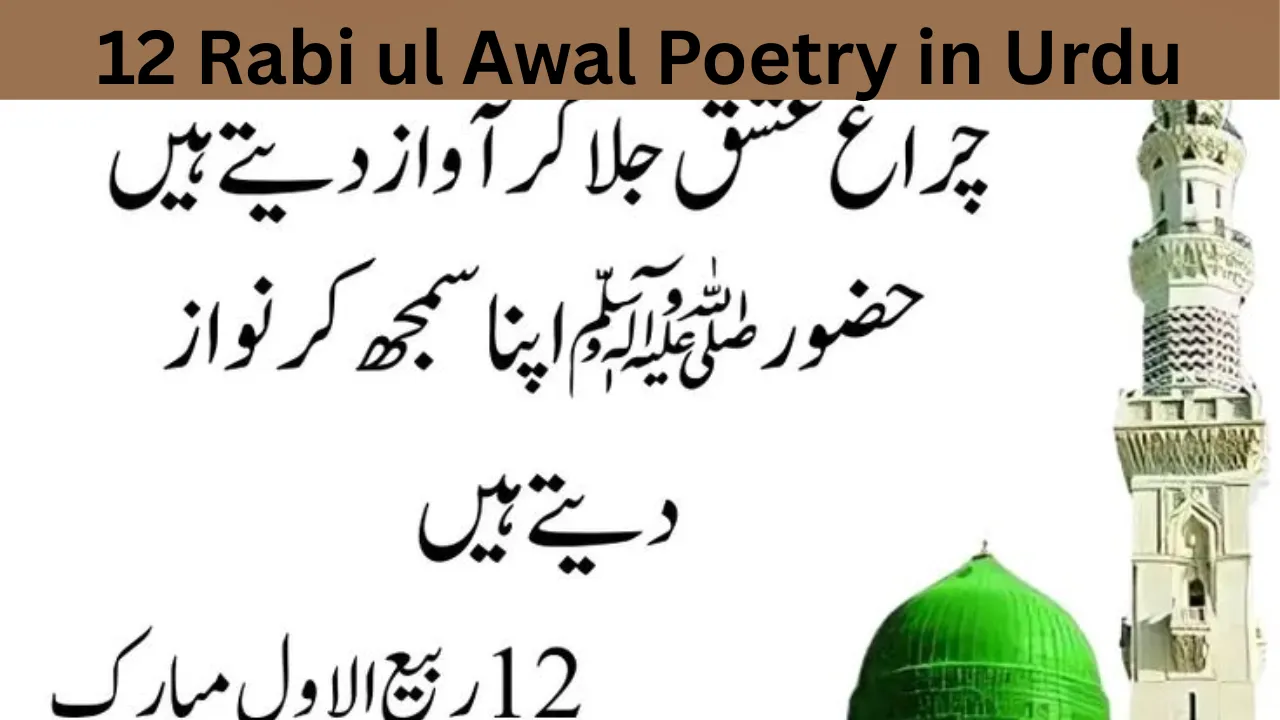
The 12 Rabi ul Awal holds great significance in Islam as it marks the birth of Prophet Muhammad (PBUH). Muslims worldwide celebrate this date with prayers, processions, and special gatherings, where they recite 12 Rabi ul Awal poetry to honor the Prophet. These poetic verses convey deep love, admiration, and devotion to the Prophet Muhammad (PBUH). And the tradition of reciting them is an integral part of the celebrations. The beauty of 12 Rabi ul Awal poetry in Urdu lies in its ability to express the immense respect Muslims have for the Prophet and his teachings. Just like Bewafa Dost Poetry in Urdu: Heartfelt Lines on Broken Friendship, which reflects deep emotions. The poetry on 12 Rabi ul Awal brings out powerful feelings of love and devotion, connecting the hearts of Muslims with the legacy of the Prophet Muhammad (PBUH).
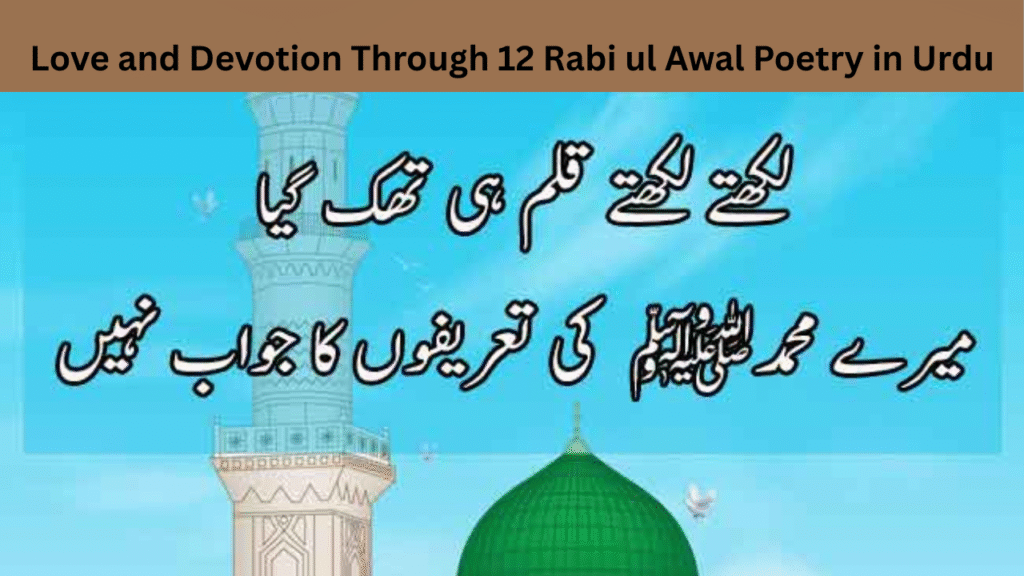
Love and Devotion Through 12 Rabi ul Awal Poetry in Urdu
The birth of Prophet Muhammad (PBUH) is a joyous occasion for Muslims. And 12 Rabi ul Awal poetry in Urdu serves as an emotional tribute to the Prophet. These verses are a way to express the deep love Muslims have for the Prophet Muhammad (PBUH). Whose life continues to inspire and guide them.
One of the most prominent features of 12 Rabi ul Awal poetry is its ability to convey love for the Prophet in an emotional and spiritual way. The poetry encapsulates the profound respect Muslims have for the Prophet, whose teachings have shaped the lives of millions.
“نور سے تیرا چہرہ تھا روشن، دلوں کی سکونت کا تھا سبب،
تیری ولادت سے ہم نے پایا، ہر غم کا علاج تھا تیرا سبب۔”
Translation:
Your face was illuminated with light, the reason for the peace of hearts,
From your birth, we found solace, the cure for every sorrow was found in you.
In this verse, the poet beautifully expresses how the Prophet’s birth brought light and peace into the lives of Muslims. Becoming the reason for their spiritual solace.
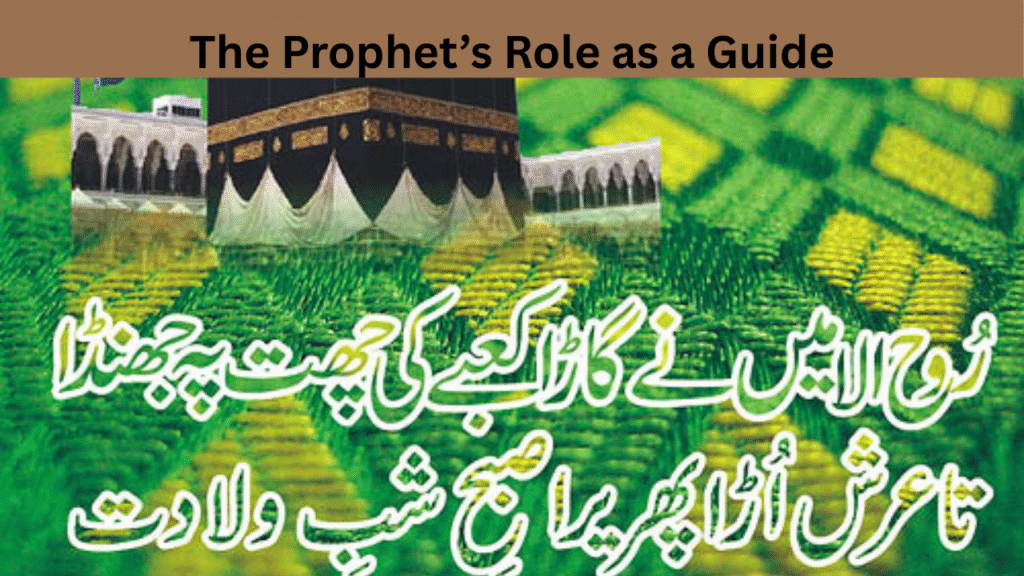
The Prophet’s Role as a Guide
The Prophet Muhammad (PBUH) was not just a leader but a guide, showing Muslims the path to righteousness and justice. His life and teachings continue to inspire, and 12 Rabi ul Awal poetry in Urdu often reflects on his role as a spiritual guide for humanity.
“تُو تھا رہبرِ انسانیت، تیرے قدموں میں سکون ہے جہاں،
پھولوں کی طرح تیری باتیں، دلوں میں بہار کا ہے جہاں۔”
Translation:
You were the guide of humanity, in your footsteps, peace is found,
Your words, like flowers, bring spring to hearts.
This verse highlights the Prophet’s role as the ultimate guide for Muslims, and how his words continue to uplift hearts. Bringing spiritual spring to the souls of believers.
As we reflect on the profound impact of the Prophet’s guidance. We are reminded of the wisdom and peace that flows from following his path. For example, if you’re interested in the emotional depth found in poetry. You might also explore Sad Poetry in English: Understanding Emotions Through Words, where the beauty of words helps us connect with our emotions and experiences. Similar to how the Prophet’s teachings connect us to our spirituality.
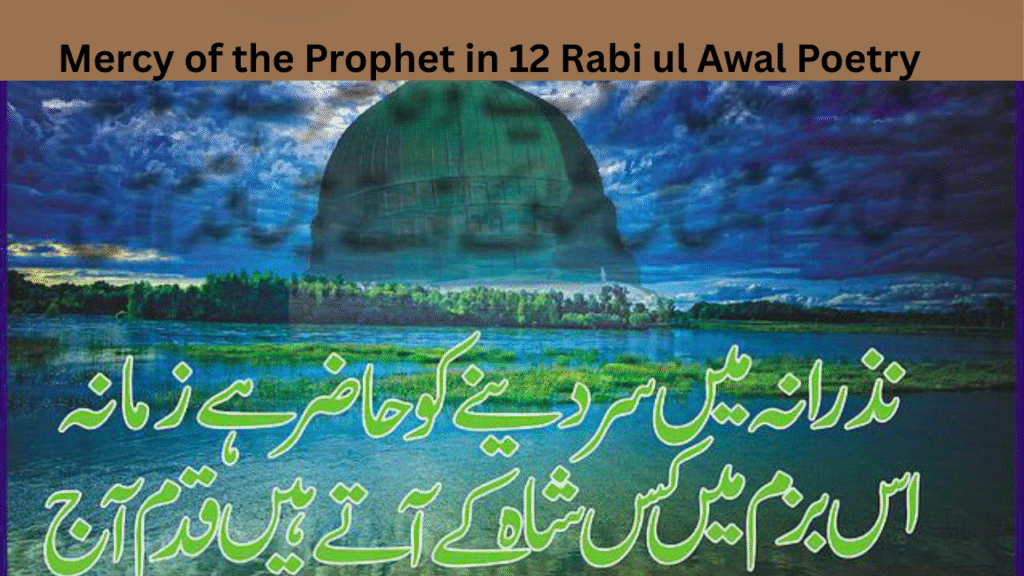
Mercy of the Prophet in 12 Rabi ul Awal Poetry
One of the most celebrated attributes of Prophet Muhammad (PBUH) is his mercy. He is known as Rahmatul lil Alameen (Mercy to the worlds), and 12 Rabi ul Awal poetry in Urdu often focuses on this attribute. Reflecting on the Prophet’s compassion and kindness towards all of humanity.
“تُو ہے رحمت کا پیغام، تیرے قدموں میں سکون ہے جہاں،
تیری نظر سے روشن ہو گیا، دلوں کا ہر اندھیرا جہاں۔”
Translation:
You are the message of mercy, in your footsteps is peace found,
With your gaze, every dark heart was illuminated.
This verse portrays the immense mercy that the Prophet embodied. Comparing the very dust beneath his feet to a greeting of peace and recognizing. The purity and truth in his every word.
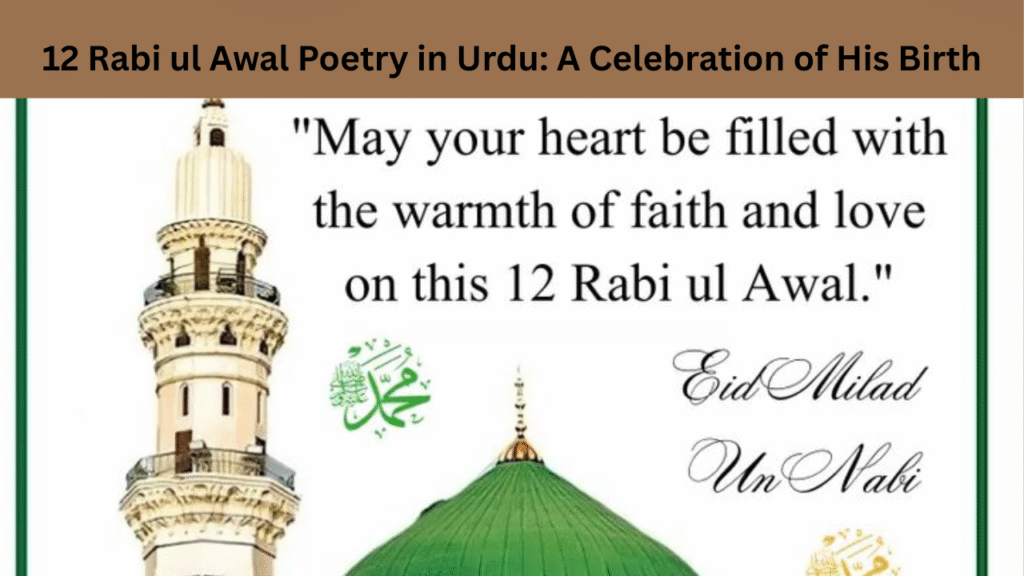
12 Rabi ul Awal Poetry in Urdu: A Celebration of His Birth
The celebration of 12 Rabi ul Awal is a moment of immense joy for Muslims. It is not only the celebration of the Prophet’s birth but also the celebration of the wisdom, mercy, and guidance he brought into the world. 12 Rabi ul Awal poetry in Urdu helps convey. The deep gratitude Muslims feel for the Prophet’s arrival and the legacy he left behind.
“تُو تھا وہ پیغمبر، جو دنیا میں آیا تھا نور کا،
ہر دل میں تیرے میلاد کی خوشبو تھی، ہر زبان پر تھا تذکرہ تیرا۔”
Translation:
You were that Prophet, who came as a light to the world,
In every heart was the fragrance of your birth, and on every tongue, your mention was made.
This verse reflects the joy and celebration of the Prophet’s birth. With the remembrance of his name spreading throughout the world like a beautiful fragrance.
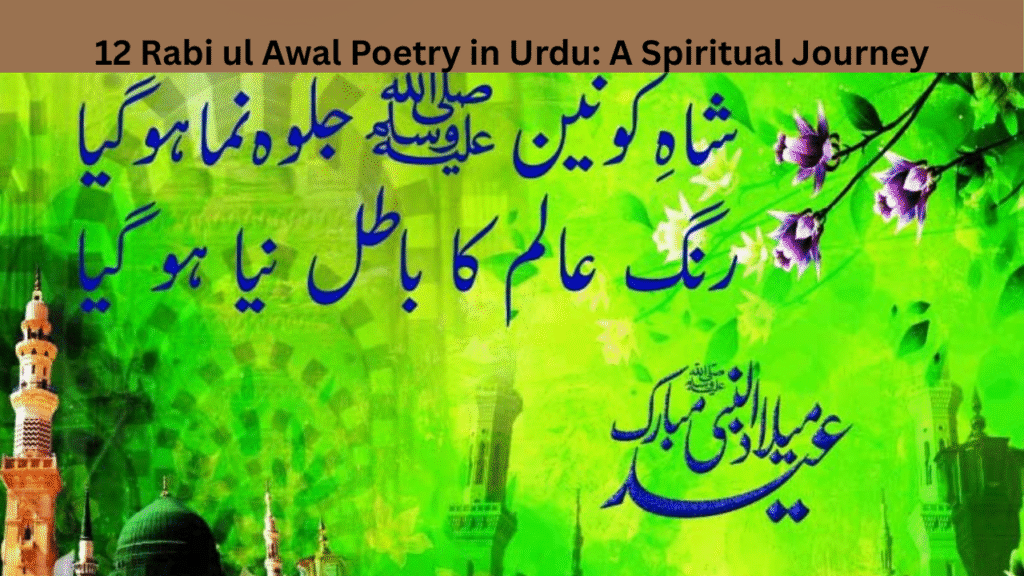
12 Rabi ul Awal Poetry in Urdu: A Spiritual Journey
The poetry recited during 12 Rabi ul Awal is a spiritual journey. Where Muslims reflect on the Prophet’s life and teachings. Through the verses, they reconnect with the essence of his guidance and mercy. 12 Rabi ul Awal poetry serves as a reminder for Muslims to follow the righteous path shown by the Prophet.
“تُو تھا رہبرِ حق، ہم نے تیری راہ پر چلنا سیکھا،
تیرے صدقے میں ہم نے ہر جفا کو، محبت سے جیتا۔”
Translation:
You were the guide of truth, we learned to walk your path,
Through your blessings, we conquered every hardship with love.
In these verses, the poet speaks of the profound impact the Prophet’s teachings have on their lives. How his example has led them to overcome trials with love and patience.
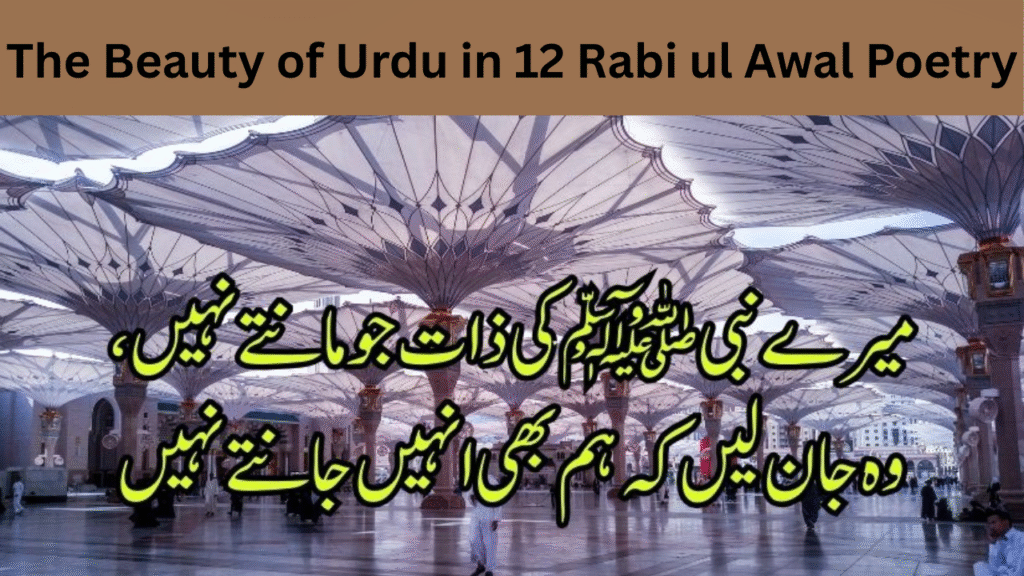
The Beauty of Urdu in 12 Rabi ul Awal Poetry
Urdu, known for its lyrical and emotional depth, is the perfect language to convey the beauty of 12 Rabi ul Awal poetry in Urdu. The rhythm, meter, and flow of Urdu verses have a unique ability to stir emotions. And bring the listener closer to the message being conveyed.
“جہاں بھی جاؤں، تیری یادیں ساتھ ہیں،
تیری ہدایت کی روشنی، دل میں ہے جاؤں۔”
Translation:
Wherever I go, your memories are with me,
The light of your guidance, is within me wherever I go.
This verse beautifully showcases the emotional attachment Muslims feel to the Prophet. With his teachings remaining in their hearts and guiding them wherever they go.
12 Rabi ul Awal Poetry in Urdu: A Call for Unity
In addition to celebrating the Prophet’s life and teachings. 12 Rabi ul Awal poetry in Urdu also calls for unity among Muslims. The Prophet Muhammad (PBUH) always emphasized the importance of unity, and these poems often reflect that message.
“مسلمانوں تمہیں چاہیے، ایک دل اور ایک زبان،
توحید کی راہ پر چل کر بناؤ اپنا ایمان۔”
Translation:
Muslims, you must have one heart, one tongue,
Walk the path of Tawheed, and strengthen your faith.
This verse emphasizes the importance of unity within the Muslim community. Urging them to come together in faith and follow the path of unity and brotherhood that the Prophet Muhammad (PBUH) laid out.
The Continued Popularity of 12 Rabi ul Awal Poetry in Urdu
The tradition of reciting 12 Rabi ul Awal poetry in Urdu remains strong. Because it offers Muslims a way to express their love for the Prophet and connect to his teachings. Every year, as the 12th of Rabi ul Awal approaches, Muslims gather to recite these beautiful verses. Reinforcing their faith and love for the Prophet Muhammad (PBUH).
12 Rabi ul Awal poetry has become a timeless tradition. Not just as a celebration of the Prophet’s birth. But as a way to honor his teachings and remember his legacy. These verses continue to inspire Muslims to lead lives filled with kindness, mercy, and justice. Just as the Prophet Muhammad (PBUH) did.
Conclusion
In conclusion, 12 Rabi ul Awal poetry in Urdu is an essential part of the celebrations. That take place around the world to honor the birth of Prophet Muhammad (PBUH). Through these verses, Muslims express their love, devotion. And gratitude to the Prophet for the wisdom and guidance he brought to the world. The beauty of Urdu poetry allows these emotions to flow, touching the hearts of all who listen.
As we celebrate 12 Rabi ul Awal, we remember the life of Prophet Muhammad (PBUH) and strive to live by his teachings. 12 Rabi ul Awal poetry serves as a beautiful reminder of the Prophet’s enduring legacy. Inspiring Muslims to embody the values of compassion, kindness, and justice that he exemplified throughout his life.
